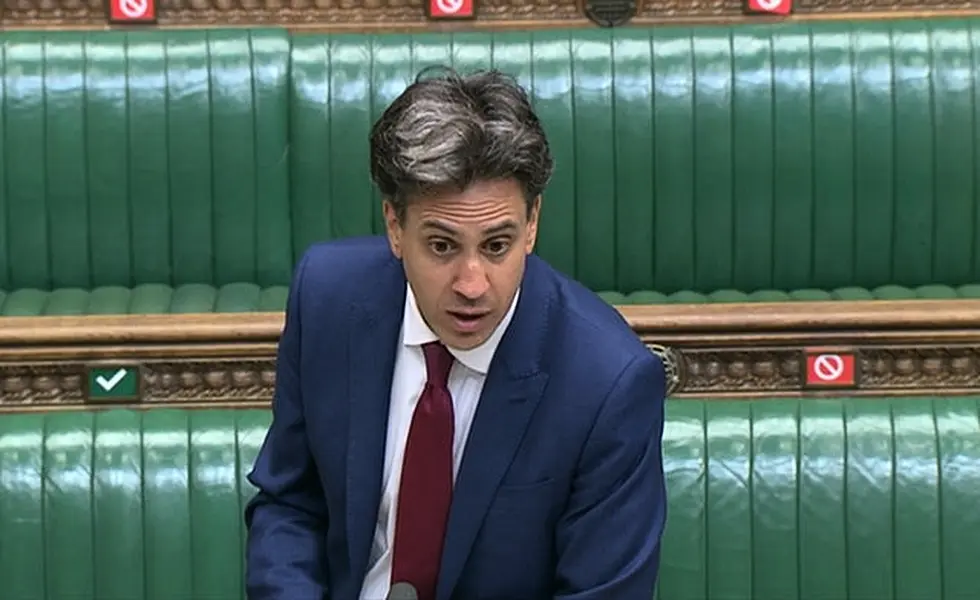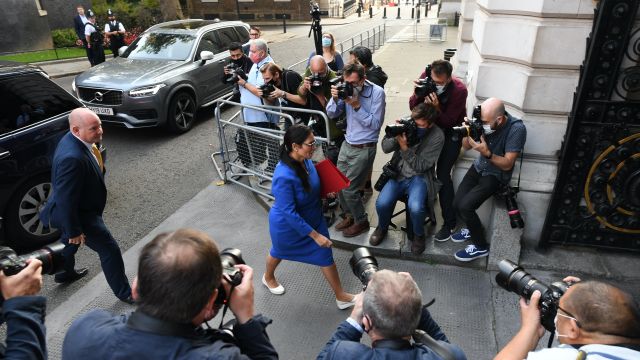The UK Internal Market Bill cleared its first hurdle in the British parliament on Monday despite deep misgivings by some senior Conservative politicians.
Boris Johnson’s controversial plan to use domestic law to supersede elements of the Withdrawal Agreement he signed with the EU passed its second reading by 340 to 263 – a government majority of 77.
The proposition that we should march through the Lobby as lawmakers and say that we are going to ignore and disavow a law that we have passed... that is completely unacceptable
But Tories have continued to rally against the plans, which will be analysed in greater detail on Tuesday when MPs go through detailed line-by-line scrutiny of the Bill.
UK government whips are bracing themselves for expected votes next week on amendments to the Northern Ireland provisions which some rebels may back.
A number of Conservative former ministers have made clear they would not support any measure that breached international law, including former chancellor Sajid Javid, Andrew Mitchell and two former attorney generals, Geoffrey Cox and Jeremy Wright.
It is not clear to me why it is necessary for the UK to break international law. I am regretfully unable to support the UK Internal Market Bill unamended. pic.twitter.com/ID0CeyXCeJ
— Sajid Javid (@sajidjavid) September 14, 2020
Mr Mitchell, speaking to BBC Radio 4’s Today programme, said: “The proposition that we should march through the Lobby as lawmakers and say that we are going to ignore and disavow a law that we have passed, to do with the rule of law, that is completely unacceptable.”
The ex-international development secretary said the proposals were “causing very considerable anxiety and worry” on the government backbenches.
During the vote on Monday two Tory MPs – Roger Gale and Andrew Percy – voted against the Bill, while 30 did not cast a vote, although some may have been “paired” with opposition MPs.
The government tally was bolstered by seven DUP MPs.
Ms Patel defended the need for the legislation, telling broadcasters the government was standing by the Union.
“When it comes to preserving the integrity of the UK and clearly delivering for the people of Northern Ireland when it comes to the Good Friday Agreement, we’ve said from day one… that we would always stand by our word and not compromise when it comes to unfettered access in goods and services but also standing by the Good Friday Agreement,” she said on BBC Breakfast.
“We are ensuring the UK Internal Market Bill stays true to that principle, that is why we are bringing this Bill forward.”
We want a great future relationship and a free trade agreement with the EU - but we will not get there if they seek to divide us.
We must protect the sovereignty and integrity of our United Kingdom. pic.twitter.com/N3wNh4ROvV— Boris Johnson (@BorisJohnson) September 14, 2020
Mr Johnson met his Cabinet on Tuesday as his top team prepares for what is likely to be a difficult week in the House of Commons.
Mr Johnson – who took the unusual step of opening the debate on the Bill himself on Monday – said the legislation was necessary to prevent the EU taking an “extreme and unreasonable” interpretation of the provisions in the Withdrawal Agreement relating to Northern Ireland.
He said some in Brussels were threatening to block UK agri-food exports to the EU and to insist on tariffs on all goods moving to Northern Ireland from the rest of the UK.
“Absurd and self-defeating as that action would be even as we debate this matter, the EU still have not taken this revolver off the table,” he said.
He said it could mean levies of 61% on Welsh lamb, 90% on Scottish beef and 100% on Devonshire clotted cream, and would “carve tariff borders across our own country”.
But during fiery exchanges with the Prime Minister, shadow business secretary Ed Miliband – standing in for party leader Sir Keir Starmer, who is in coronavirus self-isolation – said Mr Johnson had only himself to blame for signing up to the exit terms.

“Either he wasn’t straight with the country about the deal in the first place or he didn’t understand it,” Mr Miliband said.
“Because a competent government would never have entered into a binding agreement with provisions it could not live with.”
Bob Neill, chairman of the Commons Justice Committee – who has tabled an amendment requiring a vote of Parliament before ministers can exercise the new powers in the Bill – urged MPs to “take the opportunity to change and improve these clauses”.
Asked whether ministers were likely to accept Sir Bob’s proposed changes, Ms Patel told the Today programme the Internal Market Bill “delivers” on promises made to Northern Ireland, in terms of unfettered trade access, in the Conservative Party manifesto.
“I don’t think right now it is even appropriate to comment on amendments that may or may not come forward,” she added.
“The fact of the matter is the Joint Committee was established to iron out the very clear inconsistencies in terms of the [Northern Ireland] Protocol.
“We want to reach an agreement still with the EU and we are going to concentrate as a government to work to achieve that, but through this Bill right now we want to have the safeguards and mechanisms in place to ensure we stay true to the people of Northern Ireland.”







